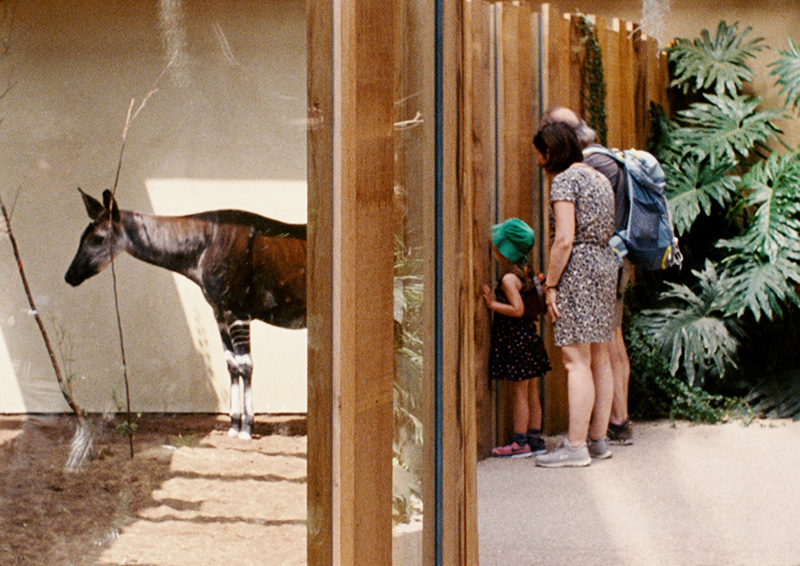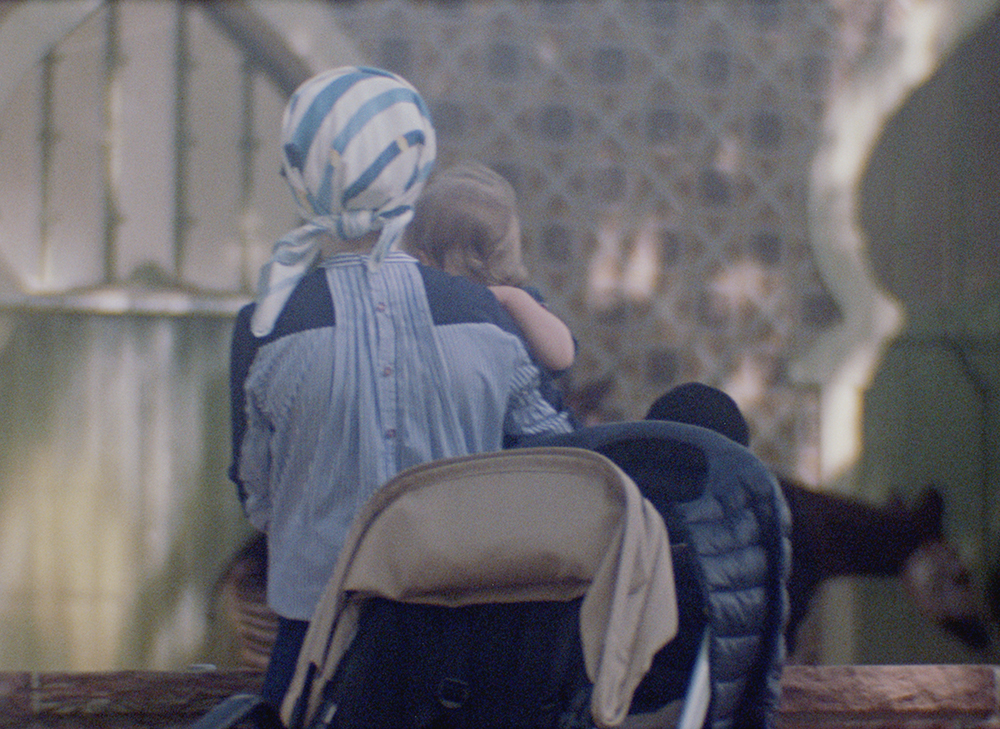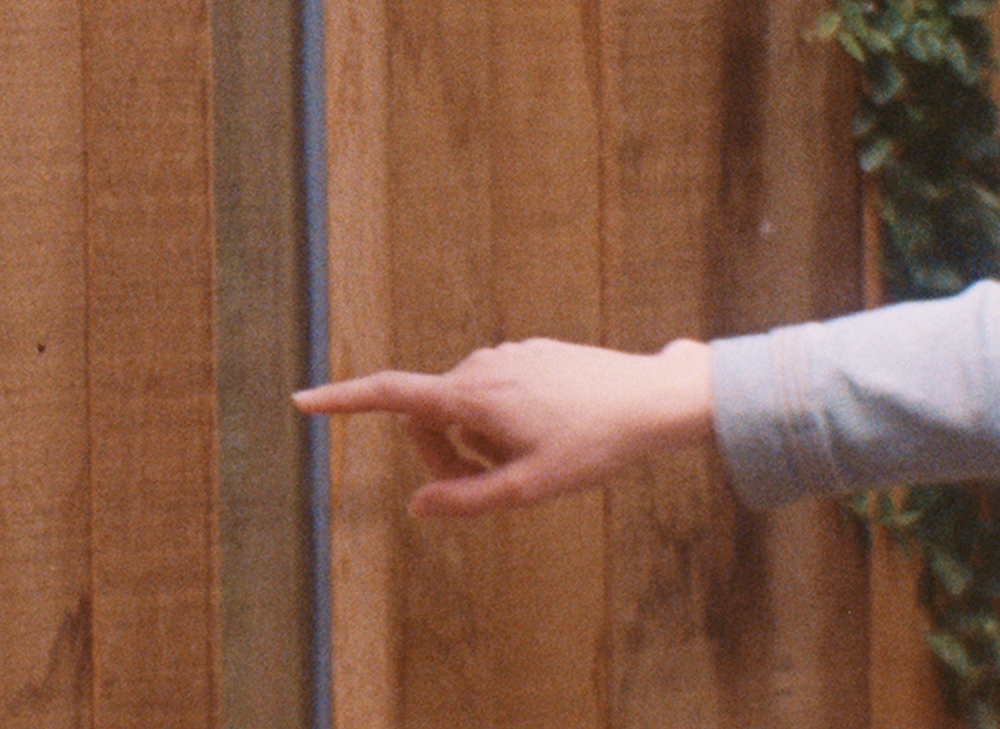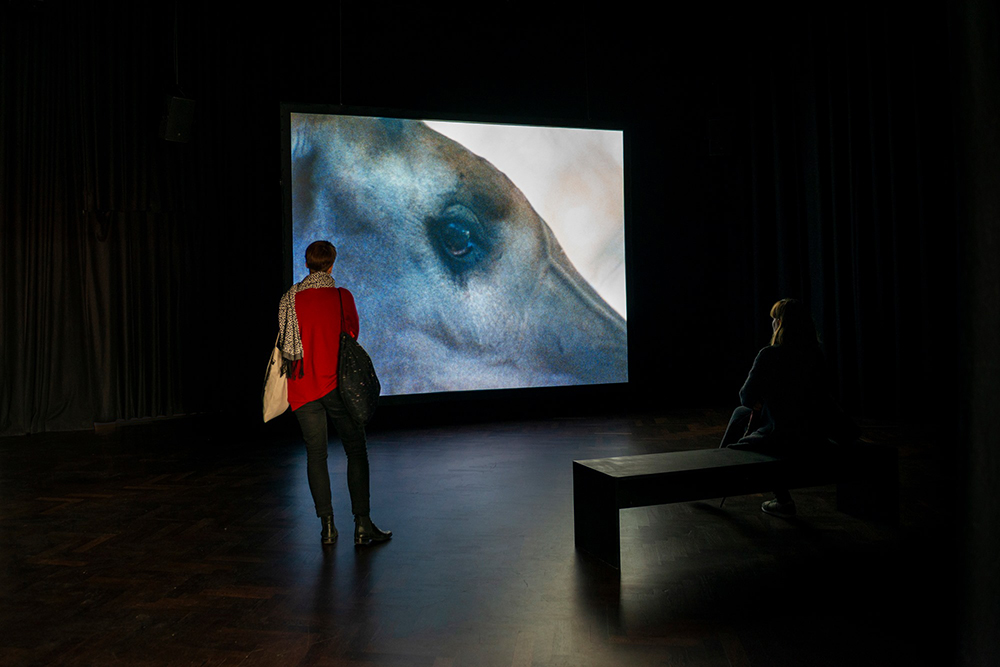Film installation
16mm transferred to 2K video, 4:3, color, sound
17′, loop
English, Dutch spoken
2019
A film poem filmed at Antwerp Zoo echoes diasporic voices of displacement. On being a foreigner. On dehumanization and language.

On being a foreigner and dehumanization.
The video poem, filmed in the Antwerp Zoo, portrays the Okapi—an animal brought into captivity for the first time in 1919. The portrait of the Okapi, a species that can be bred outside the Democratic Republic of the Congo only in captivity, is confronted with a voice-over that enacts, shouts, and sings the wounds of displacement and non-belonging.
The work engages with W.G. Sebald’s literary approach to memory, shaped by intertextuality and a metonymic mode of storytelling. In his most notable novels, Austerlitz and The Rings of Saturn, Sebald navigates landscapes marked by radicalized violence, tracing a line between the Holocaust and colonialism. Antwerp Zoo and the European railway system hold particular significance in his work: the expansion of the railways facilitated capitalist growth and transnational transport, becoming a symbol of modernity, while also enabling mass deportations and genocide.
Due to her intent to include Sebald’s phrase ‘the ugliness of Belgium’ in the film, Jureša was denied official permission to film the okapi at the Antwerp Zoo.


